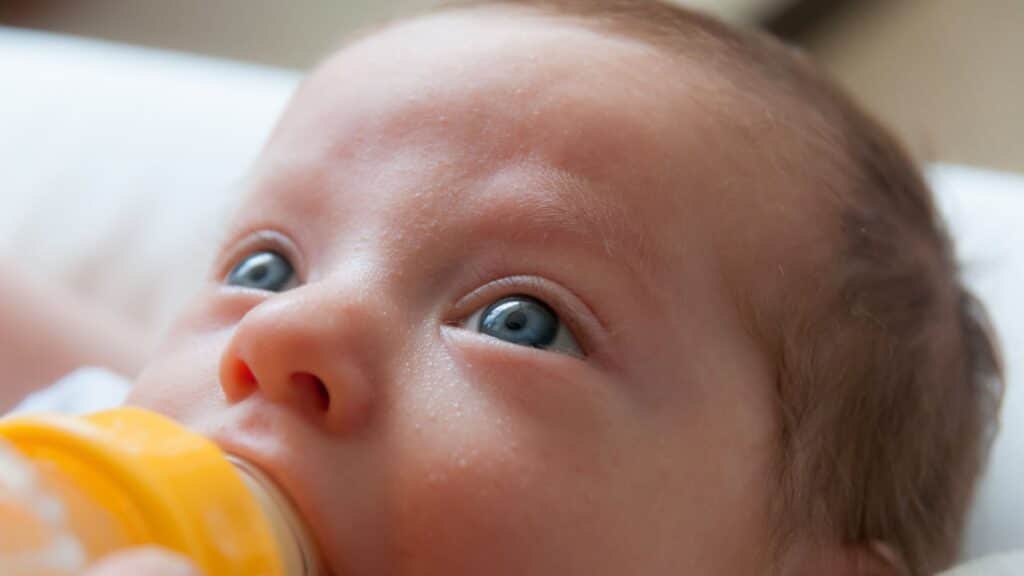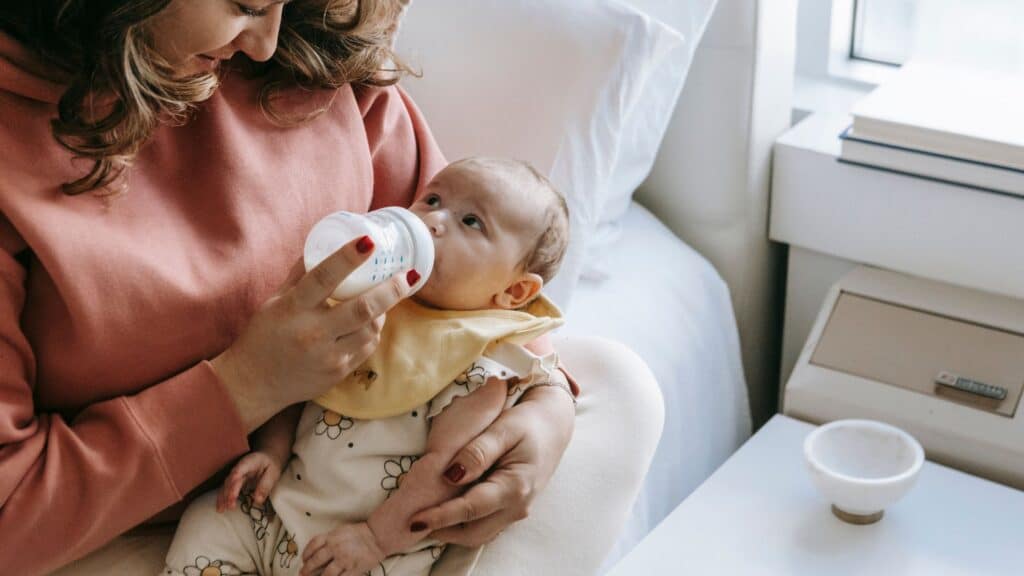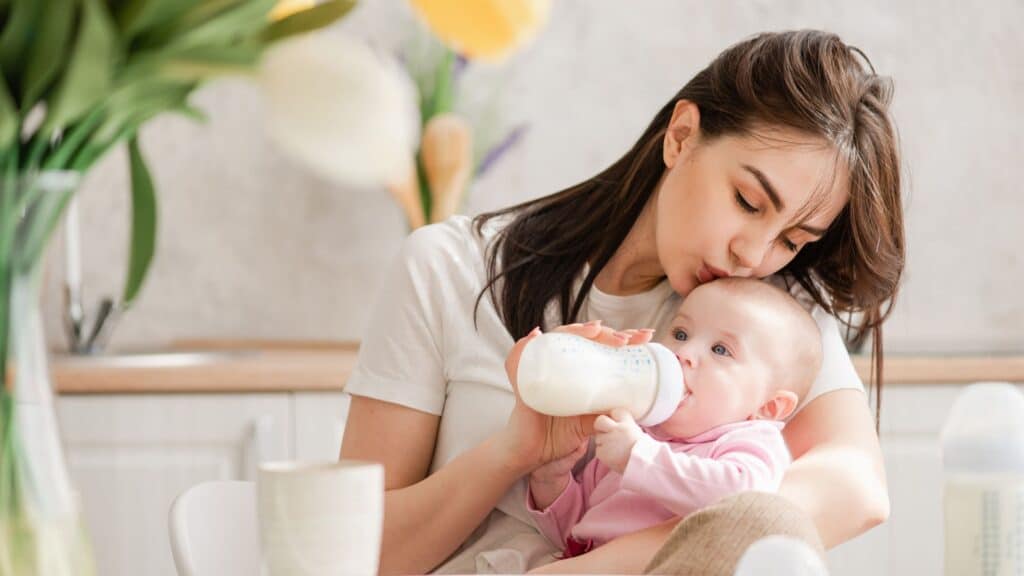Giving your baby enough nutrition is crucial, especially during its formative years. Now that you’ve chosen the right infant formula for your baby, it’s time to mix it with suitable bottled water. But with all the products available today, how will you know which one to use?
Although all water looks the same, the source often reveals the difference. This article will discuss everything you need to know about bottled water, how to store infant formula, and other ways to help ensure that your baby is getting proper nutrition while avoiding any food-related illness.

What You Need to Know About Bottled Water for Infant Formula
Breast milk will continue to benefit your baby for as long as you can carry on. But for some parents, breastfeeding can be a challenge.
Although you can mix tap water with your baby’s powdered formula, the water supply may sometimes become contaminated. So, the best option is to use bottled water to make a powdered formula.
Tap Water
The first one on the list is tap water. You primarily find it anywhere there is a municipal water system. Though many people often disregard this when making infant formula, tap water undergoes various purification processes to ensure its quality.
Mineral Water
Another option that you can consider for your baby’s powdered formula is mineral water. Generally sourced from natural mineral springs, mineral water contains essential minerals such as sulfur and calcium, which are healthy for the body.
Sparkling Water
Otherwise known as carbonated water, manufacturers infuse carbon dioxide into water under pressure. It gives off a unique mouthfeel, especially if you want something fizzy. However, because of its added sweetener and minerals, it can be quite expensive, especially when compared to low-fluoride bottled water.
Distilled Water
Distilling water involves boiling it to steam and then condensing that steam back into liquid form. It makes an excellent choice in areas where the municipal water supply is contaminated or has insufficient filtration. It’s also an excellent choice for preparing infant formula.
Spring Water
Like mineral water, spring or glacier waters are bottled water sourced from either the glacier or spring. Because of the location where it’s sourced, many assume that it’s clean and free of any toxins. It may also contain some of the same minerals found in mineral water.
Purified Water
Another one on the list is purified water. Like other products, purified water also underwent various treatments to eliminate pathogens and harmful bacteria. Thus, making it a safe choice when mixing your prepared formula.
Infused Water
Infused water is a product made with water infused with either sugar or artificial sweeteners. It’s an excellent choice if you want to make your water intake more interesting by adding your preferred flavors. You can even infuse it with your favorite fruits to make it more interesting.
Alkaline Water
Alkaline water is another product for your baby’s prepared formula. It has a higher pH level than regular water and contains negative oxidation-reduction potential and alkaline minerals, which may benefit your health. However, unlike fluoridated water, the alkaline water’s pH level may cause adverse effects on your stomach acidity. Thus, reducing its effectiveness against harmful bacteria.

Choosing the Right Bottled Water for Baby Formula
If you’re a parent or caregiver looking for alternative ways to mix baby formula rather than tap water, buying bottled water is the best choice. But with so many products in the market today, how do you pick the best one?
It’s best to read the label and look for “nursery water” products printed on the packaging. Although it isn’t entirely necessary, it’ll give you an idea of whether the product best suits your baby.
Reading the label will also give you an idea if it’s fluoridated water or not. Thus, ensuring that you’re baby won’t be prone to dental fluorosis.
How to Determine if You Need to Boil the Water for Formula
Most bottled water products don’t require boiling water unless otherwise stated. But if you’re worried about the water’s safety for mixing your infant’s baby formula, you can always boil the water as a safety precaution for disease control.
The American Academy of Pediatrics suggests using the water you deem safe when mixing formula, especially when using well water. So, feel free to boil the water for about a minute and wait for it to cool for at least 30 minutes before using the well water when feeding your baby.
However, it would be best to remember that boiled water would only eliminate viruses and other pathogens, not chemical contamination. So, you’ll risk bacterial infection if the powdered formula isn’t as sterile as it should be.
Tips When Mixing Baby Formula to Water
It’s always best to follow the instructions printed on the label when mixing formula powder. Here are a few tips to help you ensure that you’re getting the most out of your concentrated liquid formula.
Start by Adding Water First. When mixing your baby’s formula, it’s always best to start putting water in the bottle first. Then, once you got the proper water level, you may start adding the concentrated liquid formula.
Boil the Water if Necessary. Part of the primary disease control method is to boil the water, especially if you got it from an untreated water source. According to the American Academy of Pediatrics, those born prematurely and those with poor or weakened immune systems should receive a baby’s formula made with hot water.
Check the Formula Temperature. You can test the water to see if it’s at the right temperature by adding a few drops of concentrated formula to your wrist so that you can see if it’s similar to your body temperature. You can also consider running the formula container in cool water or placing it in a bowl full of ice water (ice bath) to let the liquid concentrate cool.
Throw Any Leftover Formula. Keeping any leftover warm formula will only make it prone to contamination. So, it’s best to get rid of any leftover liquid concentrate formula within an hour of feeding. Meanwhile, if you have prepared any unused formula, you can store it inside the fridge for up to 24 hours.

Summary
It’s always best to speak with your baby’s doctor to learn more tips to help you safely prepare baby formula. In addition, the AAP advises parents and caregivers to connect with their local health department or water company to determine if the water quality is safe for preparing formula.
Choosing suitable bottled water is essential, especially for babies with weakened immune systems or those born prematurely. Because the water quality can vary for every source or region, it’s essential to get the water tested before using it. Doing so will determine if it’s okay to use for your baby.
Do you have any questions about this article? Comment below!



